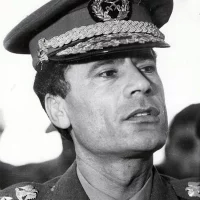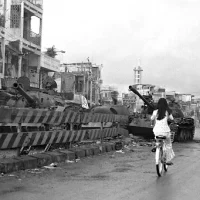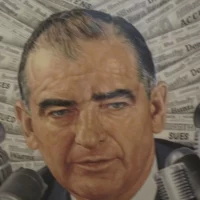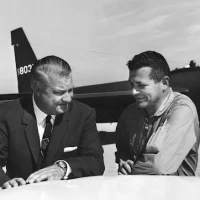April 30, 1975 will long be remembered as the day that Saigon fell and with it, the end of U.S. involvement in Vietnam. It also marked the beginning of Vietnam’s unification as a “socialist republic.” North Vietnamese forces began their final attack on Saigon on April 29, with a heavy artillery bombardment. This bombardment at the… Read More "The Fall of Saigon — April 30, 1975"
The Bombing of U.S. Embassy Beirut — April 18, 1983
The suicide bombing of the U.S. embassy in Beirut, Lebanon on April 18, 1983 was the deadliest attack on a U.S. diplomatic mission up to that point. The blast killed 63 people, 17 of whom were Americans. The attack is thought of as the beginning of anti-U.S. attacks from Islamist groups. Along with the Marine… Read More "The Bombing of U.S. Embassy Beirut — April 18, 1983"
The late 1980s saw an alarming decline in U.S.-Libyan relations. A plane hijacking and airport attacks in Rome and Vienna in 1985, all linked to Libyan leader Muammar Qaddafi further escalated tensions between the two countries. The U.S. discovered that surface-to-air missiles were being deployed in Libya around the same time. In contravention of international… Read More "Crossing Qaddafi’s Line of Death – April 15, 1986"
It took place in the shadow of the dramatic evacuation from Saigon, which signaled the close of an era and the end to a U.S. presence in Vietnam. However, the fall of Phnom Penh proved to be an even greater tragedy, as it paved the way for a takeover by the ruthless Khmer Rouge, whose… Read More "Operation Eagle Pull before the Fall of Phnom Penh"
A Soul Filled with Shame –The Rwandan Genocide, April 7- July 18,1994
A colony of Belgium until 1962, Rwanda became dominated politically by the minority Tutsis. During the independence movement, the majority Hutus seized control of the government, killing thousands of Tutsis and forcing even more into exile. Many fled to Burundi and Uganda as refugees. Tensions between the two ethnic groups continued to fester over the… Read More "A Soul Filled with Shame –The Rwandan Genocide, April 7- July 18,1994"
FSO Ends Up in an Irish Stew Over His Christmas Letter
We’ve all wanted to blow off steam about our boss, co-workers, or those troglodytes in Human Resources. Robin Berrington, who served as Public Affairs Officer in Dublin from 1978 through 1981, was no different. He talked about his frustrations with his job and with Ireland in general in what was supposed to be a private… Read More "FSO Ends Up in an Irish Stew Over His Christmas Letter"
The Terrorist Attack on the Saudi Embassy — Khartoum, 1973
Less than a year after its members murdered 11 Israeli athletes and one German police guard during the 1972 Summer Olympics in Munich, the infamous Palestinian terrorist group Black September Organization (BSO) on March 1, 1973 launched a brazen raid on the Saudi Arabian embassy in Khartoum, Sudan, kidnapping U.S. Ambassador Cleo Noel and Deputy Chief… Read More "The Terrorist Attack on the Saudi Embassy — Khartoum, 1973"
With his infamous Wheeling, West Virginia speech on February 9, 1950, in which he declared he had a list of communists working in the State Department, Senator Joseph McCarthy ushered in one of the darker periods in the post-war era. The speech came at a time when the fear of communism and communist infiltrators in… Read More "McCarthy’s Red Herring"
On May 1, 1960, an American U-2 spy plane was shot down over the Soviet Union and its pilot, Francis Gary Powers, was captured. The Eisenhower administration initially attempted to cover up the incident but was soon forced to admit that the U.S. had been conducting reconnaissance flights over the Soviet Union for several years.… Read More "The Show Trial of U-2 Pilot Francis Gary Powers"
The Assassination of Ambassador Spike Dubs — Kabul, 1979
Adolph “Spike” Dubs was a career diplomat who served in Germany, Liberia, and the Soviet Union. He became a noted Soviet expert, and in 1973-74 he served as charge d’affaires at Embassy Moscow. In 1978, he was appointed Ambassador to Afghanistan following a coup d’etat which brought the Soviet-aligned Khalq faction to power. On February 14, 1979, Dubs was kidnapped by armed militants posing as… Read More "The Assassination of Ambassador Spike Dubs — Kabul, 1979"




